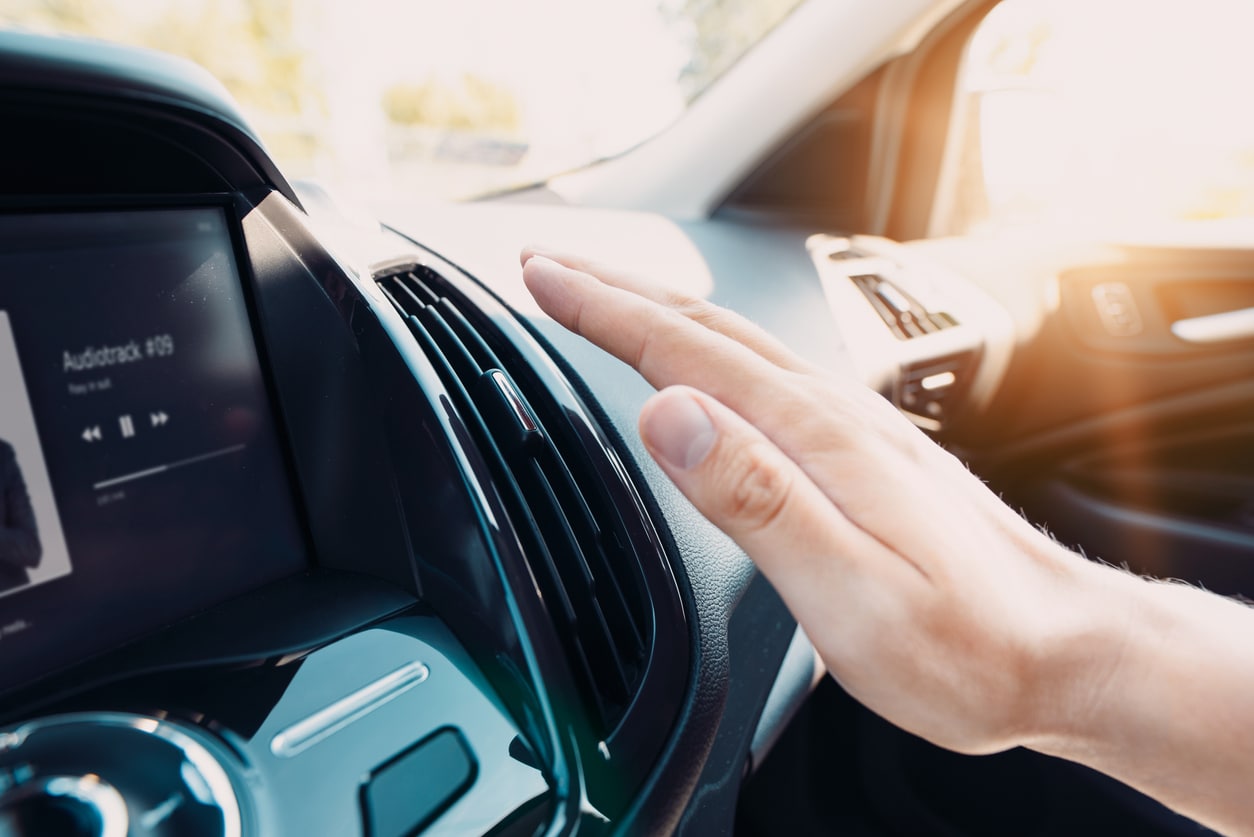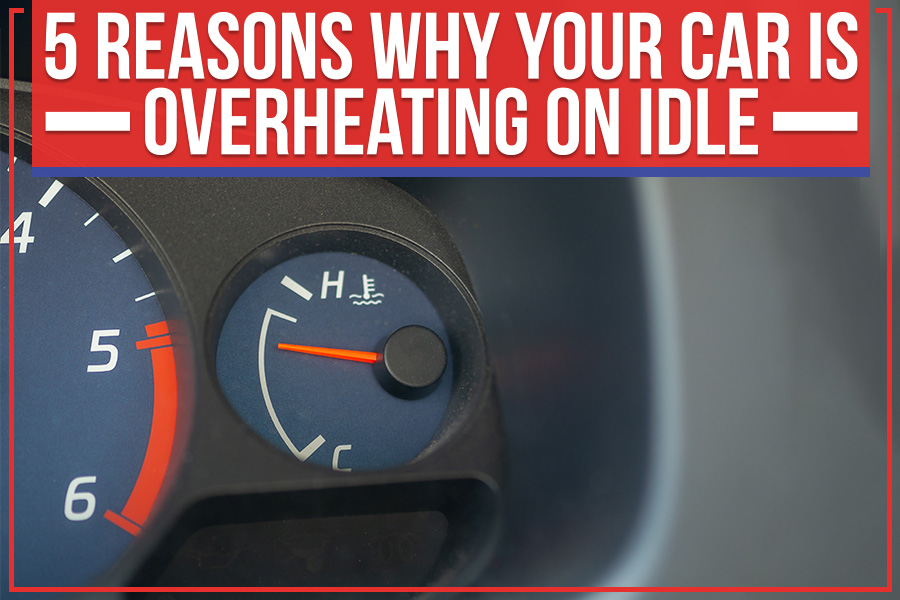When a car heats up when idling but cools when driving, the issue may be due to a malfunctioning cooling system. This could be caused by a faulty radiator, water pump, thermostat, or low coolant levels.
An overheating car can be a frustrating and concerning issue for many drivers. When a car is idling, it produces less airflow over the radiator, which can lead to overheating. However, when driving, the increased airflow can help cool the engine down.
To address this issue, it’s essential to check for any leaks, ensure the radiator and water pump are functioning correctly, and verify that the coolant levels are adequate. Regular maintenance and prompt attention to any cooling system problems can help prevent further vehicle issues and ensure safe and efficient operation.
Causes Of Car Overheating
When a car heats up when idling but cools down when driving, it can be a sign of underlying issues causing the overheating.
Issues With The Cooling System
The cooling system is crucial for regulating the engine temperature to prevent overheating.
- Clogged radiator preventing proper heat dissipation.
- Defective water pump impeding coolant circulation.
- Leaking hoses leading to coolant loss and ineffective cooling.
Faulty Thermostat
A malfunctioning thermostat can disrupt the engine’s cooling process, leading to overheating.
- Stuck thermostat causing coolant flow restriction.
- Inaccurate temperature reading resulting in improper cooling system operation.
Low Coolant Level
Insufficient coolant levels can hinder the cooling system’s ability to regulate the engine temperature.
| Causes | Solutions |
|---|---|
| Leakage or evaporation | Check for leaks and top up coolant as needed |
| Failure to refill after maintenance | Regularly monitor and maintain proper coolant levels |
Addressing these root causes promptly can prevent further issues with overheating and maintain the optimal performance of your vehicle.

Credit: www.hansonkia.com
Effects Of Engine Overheating
Continued overheating can lead to permanent engine damage such as cracked cylinder heads.
Excessive heat can cause the engine oil to break down, reducing its lubricating ability.
Troubleshooting The Issue
If your car begins to heat up when idling but cools down when driving, it is important to investigate and resolve the issue promptly. Ignoring this problem can lead to severe engine damage and costly repairs. In this section, we will explore three key areas to check when troubleshooting this issue: the radiator, the cooling fans, and the serpentine belt.
Check The Radiator
The radiator plays a vital role in maintaining the engine’s optimal temperature. A malfunctioning radiator can cause overheating, especially when the car is idling. Here are some steps to check the condition of your radiator:
- Ensure the engine is cool before examining the radiator.
- Inspect the exterior of the radiator for any visible signs of damage such as leaks, bent fins, or mineral deposits.
- Check the coolant levels to ensure they are at the appropriate mark. If necessary, top up the coolant with a mixture of water and antifreeze.
- Inspect the radiator cap for any signs of wear or damage. A faulty radiator cap can prevent proper pressurization, leading to overheating.
Inspect The Cooling Fans
The cooling fans are responsible for circulating air through the radiator and preventing the engine from overheating. If they are not functioning correctly, your car may experience overheating issues when idling. Follow these steps to inspect the cooling fans:
- Start the engine and let it idle for a few minutes.
- Observe the cooling fans to ensure they are spinning properly. If they are not moving or moving too slowly, there may be an issue with the fan motor or its control system.
- Check the electrical connections to the cooling fans to ensure they are secure and free from corrosion.
- If the fans are not working as they should, it is recommended to have them inspected and repaired by a qualified mechanic.
Examine The Serpentine Belt
The serpentine belt is responsible for driving various engine components, including the water pump, alternator, and power steering pump. If the belt is damaged or worn, it can lead to insufficient coolant circulation and overheating. Here’s how you can examine the serpentine belt:
- Turn off the engine and let it cool down before proceeding.
- Inspect the belt for any cracks, fraying, or signs of excessive wear. A damaged belt should be replaced immediately.
- Check the belt tension by pressing down on it midway between two pulleys. The belt should have some give, but not too much. If it feels loose, it may need to be tightened or replaced.
- Ensure all pulleys the belt runs on are in good condition and aligned properly.
By checking the radiator, inspecting the cooling fans, and examining the serpentine belt, you can troubleshoot and address the issue of your car heating up when idling but cooling down when driving. If these steps do not resolve the problem, it is recommended to consult a professional mechanic for further diagnosis and repair.

Credit: www.firestonecompleteautocare.com
Preventive Measures
When it comes to preventing your car from overheating when idling, there are several key measures you can take to ensure your vehicle stays cool and runs smoothly. By implementing regular maintenance, maintaining proper coolant levels, and avoiding long idling periods, you can significantly reduce the risk of your car overheating during idle times. Let’s explore these preventive measures in more detail.
Regular Maintenance
Regular maintenance is crucial to ensuring that your car’s cooling system functions as it should. This includes checking the condition of the radiator, belts, and hoses, as well as ensuring that the cooling fan is in good working condition. By scheduling routine inspections and addressing any issues promptly, you can prevent potential problems that may lead to overheating while idling.
Proper Coolant Levels
Maintaining proper coolant levels is essential for regulating your car’s engine temperature. Regularly check the coolant level and top it up as needed to prevent overheating. Additionally, ensuring the coolant mixture is at the appropriate ratio of coolant to water is crucial for optimal performance and heat dissipation.
Avoid Long Idling Periods
Avoiding prolonged idling periods plays a significant role in preventing your car from overheating. When the vehicle is stationary, the airflow through the radiator is reduced, impacting the cooling process. Whenever possible, limit idling time and consider shutting off the engine if you anticipate a lengthy wait. By reducing idle time, you can minimize the strain on the cooling system and prevent overheating.
When To Seek Professional Help
Persistent Overheating
“` If your car continues to overheat even after attempts to address the issue, seeking professional help is crucial to prevent further damage. “`htmlStrange Noises Or Smells
“` Unusual noises or smells emitting from your car while idling or driving can indicate internal issues. Consulting a professional is advisable to accurately diagnose and resolve the problem. In case you notice persistent overheating despite attempts to resolve it, seeking professional help is crucial to prevent further damage. Additionally, strange noises or smells emitting from your car while idling or driving can indicate internal issues. Consulting a professional is advisable to accurately diagnose and resolve the problem.
Credit: www.reddit.com
Frequently Asked Questions On Car Heats Up When Idling But Cools When Driving
Why Does My Car Heat Up When Idling?
When your car is idling, the engine is working but there’s little airflow to cool it down. This can cause the temperature to rise, especially if there are issues with the cooling system or low coolant levels.
What Are The Common Causes Of Overheating While Idling?
Common causes of overheating at idle include a faulty radiator cap, a malfunctioning cooling fan, a clogged radiator, or low coolant levels. These issues can lead to insufficient cooling and cause the engine to overheat when idling.
How Can I Prevent My Car From Overheating At Idle?
Regular maintenance, such as ensuring proper coolant levels, checking cooling system components, and addressing any warning signs promptly, can help prevent overheating at idle. Additionally, minimizing idling time can reduce heat buildup in the engine.
Conclusion
To recap, if your car heats up when idling but cools when driving, it could indicate a problem with the cooling system. This could be due to a faulty thermostat, radiator, or coolant level. It’s crucial to address these issues promptly to avoid engine damage.
Regular maintenance and inspections can help prevent these problems and ensure optimal performance. Trusting a professional mechanic to diagnose and fix the issue is always recommended.
